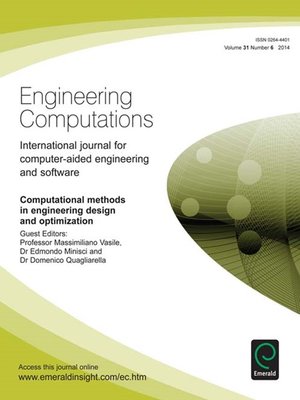
Sign up to save your library
With an OverDrive account, you can save your favorite libraries for at-a-glance information about availability. Find out more about OverDrive accounts.
Find this title in Libby, the library reading app by OverDrive.



Search for a digital library with this title
Title found at these libraries:
| Library Name | Distance |
|---|---|
| Loading... |
Across all fields of Engineering Sciences, many design problems are now tackled using computational techniques that aim at optimizing system performance. The evolution of complex systems has progressed along with the development of computational methods that can treat more and more complex design and simulation problems. All Engineering areas, from power generation and distribution, to structural mechanics and materials, from optimal control to aerodynamics, have benefited from the development of more and more sophisticated computational techniques. Today, the increase in computer performance allows numerical simulation to replace a big portion of experimental tests, and numerical optimisation to handle complex multidisciplinary design problems.
This ebook is made of three parts. The first part collected a number of development and applications of computational methods to problems in aeronautics and fluid dynamics, design and optimisation. The second part collected recent advances in the areas of robust design and design for reliability, topology optimisation and multiobjective optimisation applied to control and design, while this third part collects recent works on expert systems used in engineering design, novel decision making and control techniques based on the use of evolutionary algorithms or game theory and two interesting developments in the area of robust design optimisation of complex and expensive engineering systems.







